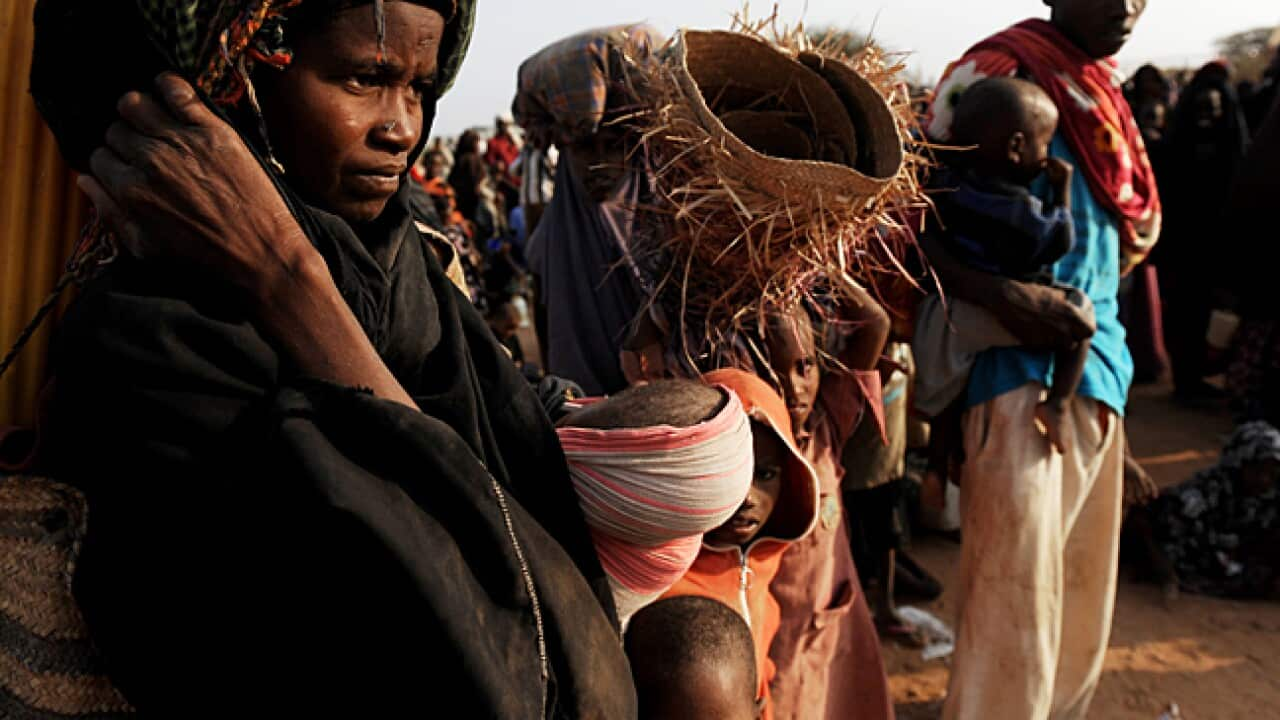With famine now declared in parts of Somalia, the search is on for more aid.
Some is arriving, but militant activity means it's being delayed, and there are fears the world is reacting too slowly.
The future for thousands of malnourished children is bleak, with mothers fleeing famine-declared southern Somali villages - only to end up in an already over-crowded refugee camp.
The situation is desperate.
It's bone dry; crops have failed for three consecutive years, and the presence of militant Islamists is hampering the all-too-minimal aid efforts.
The confronting images of malnutrition are an eerie reminder of a humanitarian crisis of yester-year.
The events of 1984 in Ethiopia's famine - it's all appearing to happen again in huge numbers.
World Vision fears the situation will significantly worsen in the long term unless African nations are permitted to deal under World Trade Organisation guidelines
"Those in Africa who only have their crops to sell are blocked, are locked out - that's immoral it's an injustice", says the Reverend Tim Costello, World Vision CEO.
Even then, it won't be easy.
HELP FROM OVERSEAS
On a smaller scale African refugees in Australia are beginning to mobilise their own aid efforts.
Refugee Hanadi Sahmed regularly sends small amounts of money and second-hand clothes to her parents, six sisters and two brothers in Sudan.
While she works two jobs supporting her own children, Hanadi is like many African refugees wrestling feelings of intense guilt, leaving loved ones in impoverished and sometimes dangerous situations.
"Someone has been struggling with disease and you not be able to help it really make you feel sad", Sahmed says.
Welfare groups like Melbourne's Spectrum Immigration support service are even creating group counselling for the increasing problem.
But in Africa, the snaking hospital queues grow ever longer, the infants even hungrier, and the situation more helpless.

